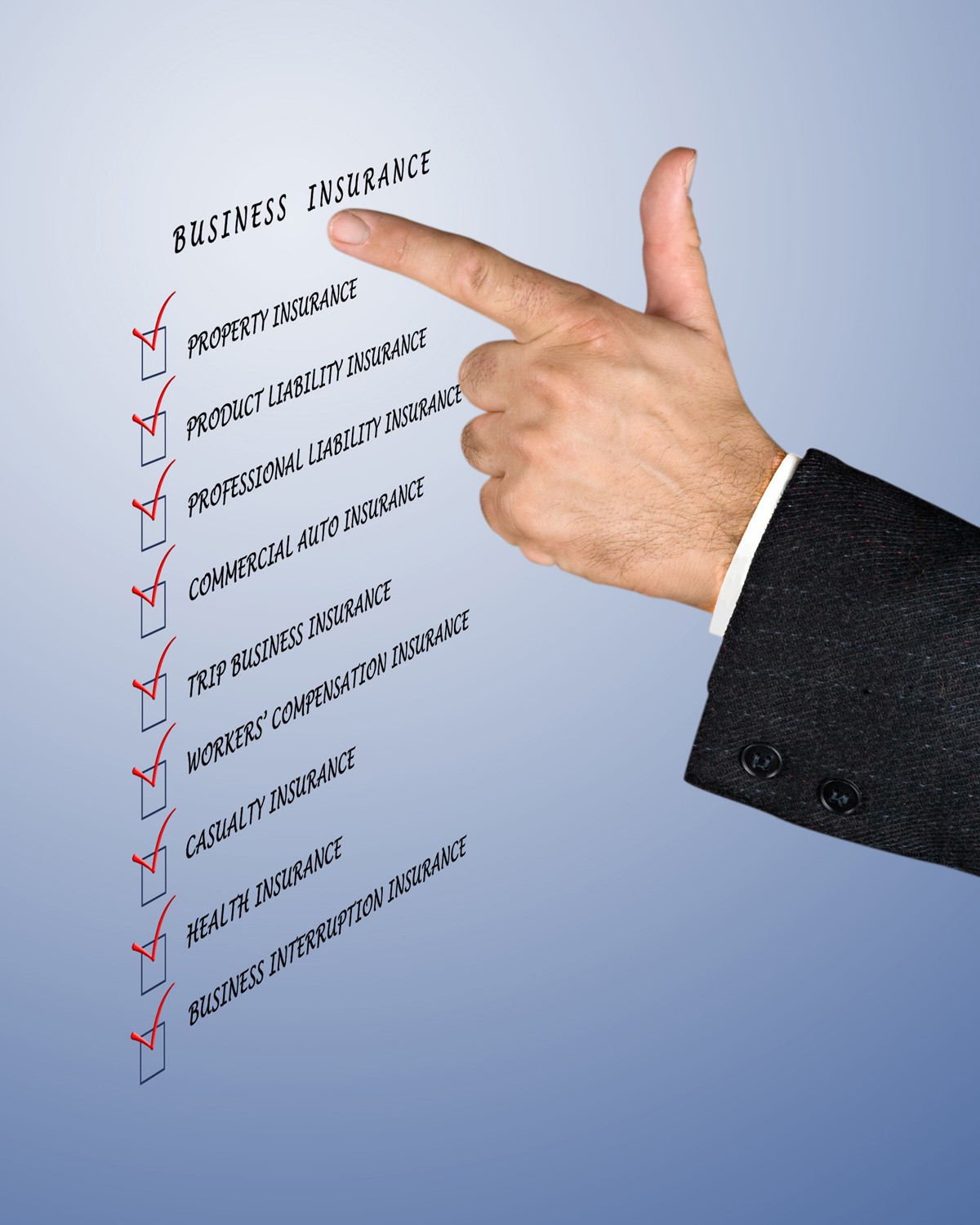There are insurance coverages that all businesses need, some that all business should consider, and some that you need only if you have special risk exposures.
Need to Have
Home-based business insurance. The standard homeowners insurance policy excludes liability arising from “business pursuits.” If you have a home-based business, you can buy a rider to add business liability coverage to your homeowners policy, but coverage is limited. With the possible exception of daycare operators, most successful business people will need one or more policies designed especially for businesses.
Commercial General Liability (CGL) insurance will pay your legal costs, along with any judgments or settlements, when you are legally obligated to pay another party due to accident, injuries and claims of negligence. Most policies also provide medical expenses coverage that will pay up to $5,000 or $10,000 toward medical expenses of a third party injured on your premises, regardless of fault.
The CGL covers you for liability arising from:
- Bodily injury, or physical harm to a person that occurs on your business premises or by your employee while driving for business.
- Property damage you (or an employee) cause to property owned by someone else.
- Personal injury, or damage to another’s rights or reputation. This includes slander, libel, invasion of privacy, false arrest and wrongful eviction.
- Advertising injury, or copyright infringement and misappropriation of another’s idea in your advertising.
The CGL has some significant exclusions, including:
- Employees. It will not cover your employees’ claims for bodily injury or employment practices. Workers’ compensation covers employees’ bodily injury and lost-time claims; Employment Practices Liability Insurance (EPLI) covers claims involving employment practices, such as wrongful termination, discrimination, etc.
- Contractual liability, or liability you accept by agreement that would not exist otherwise.
- Liquor liability – for businesses that sell, serve, make or distribute liquor.
- Slander, libel, copyright infringement or misappropriation of another’s idea – for businesses in the media industry.
- Pollution
- Damage to your work due to faulty workmanship
- Product recall
- Electronic data
As with most insurance policies, the general liability policy also excludes coverage for claims resulting from war, criminal or intentional acts.
Umbrella or excess liability insurance provides coverage once a claim exhausts the limits of your other, or “underlying,” liability policies. For example, if an employee causes a multiple-injury auto accident, your umbrella or excess policy would begin to pay after claims exceed your commercial auto policy’s liability limits. Umbrella coverage differs from excess coverage in that it can also “step down” to cover some losses not covered by the underlying policies. However, most umbrella policies exclude coverage for employment practices, professional liability and product recall—all of which can be covered by specialized policies.
Commercial Auto Insurance covers your business for auto-related liability. Personal auto policies exclude commercial use of the vehicle, leaving a serious coverage gap if you or an employee are involved in an injury or property damage accident while driving for work. Commercial auto insurance can cover vehicles on an individual or fleet basis. We strongly recommend buying uninsured and under-insured motorists coverage, coverage for borrowed or rented autos, and coverage for employees using their own cars for work.
Business Owners’ Policies (BOPs) combine business liability and property coverage into a standard package, typically including property, general liability, vehicles and business interruption. BOPs can simplify insurance buying and can save you money versus buying separate policies from different carriers. However, if your business has unique risks, this one-size-fits-all coverage might not be your best choice.
Workers’ compensation insurance. All states except New Jersey, South Dakota and Texas require businesses with employees to carry workers’ compensation insurance or self-insure. The insurance covers all lost time and medical benefits the employer is obligated to pay by state law.
Employers who lack insurance face civil fines, and some states impose criminal penalties as well. In states that don’t require insurance, employers will probably want it anyway, since without insurance, employees can sue in court for injuries. With insurance, the “workers’ compensation bargain” means employees give up their right to sue their employer in exchange for the promise of receiving state-mandated benefits.
Nice to Have and Specialized Policies
“Nice to have” policies are those that all businesses should at least consider purchasing. Employment Practices Liability (EPLI), which protects you from lawsuits such as wrongful termination, discrimination and sexual harassment, falls into this category. Specialized policies are those that only certain types of businesses need, such as professional or service businesses, corporations (whether private or public) and manufacturers and contractors.



